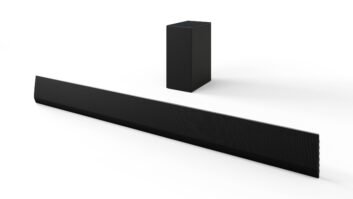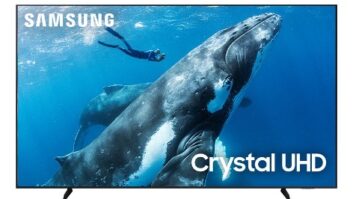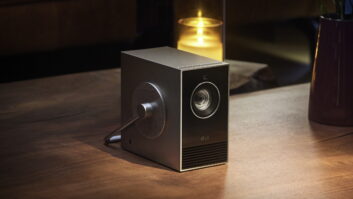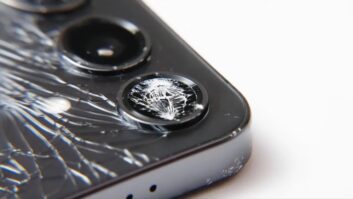Watch: What Trump’s Washer Tariff Means For The Laundry Room
Updated! President Trump has approved recommendations from the U.S. International Trade Commission (USITC), the Trade Policy Committee and U.S. Trade Representative Robert Lighthizer to impose stiff tariffs on imported household washers for the next three years.
The protectionist action, which will go into effect in two weeks, will add 20 percent to the cost of up to 1.2 million foreign-made washers, and 50 percent to imports that exceed that quota. Canadian imports are excluded from the sanctions.
“My administration is committed to defending American companies, and they’ve been very badly hurt from harmful import surges that threaten the livelihood of their workers, of jobs, actually, all over this country — many different industries,” Trump said when signing the action, which also applies to imported solar cells and modules.

The washer surcharges will be reduced to 18 percent and 45 percent, respectively, in the second year of the so-called safeguard tariffs, and to 16 percent and 40 percent, respectively, in year three.
The sanctions would have become superfluous by the fourth year, when LG and Samsung — the targets of a safeguard petition and years’-long anti-competitive crusade by Whirlpool — will have ramped up domestic washer production at their newly constructed majap plants in Tennessee and South Carolina.
Samsung was first out of the gate on Jan. 12, when it fired up its $380 million factory in Newberry County, S.C., and began producing its first U.S.-made washers. LG plans to follow suit in the fourth quarter.
See: LG Raising Washer Prices, Moving Up U.S. Production Amid Tariff Tribulations
However, a 50 percent first-year tariff will also be imposed on all imported washer tubs, drums and cabinets after the first 50,000 units, which could still add to the cost of the finished product (see chart, below).
Safeguard Tariff-Rate Quota On Imported Washers

As Whirlpool chairman Jeff Fettig noted, the decision by the Trump administration “caps nearly a decade of litigation” as the manufacturer fought to stem the tide of imported Korean washers, first by claiming they undercut domestic laundry prices, and then by arguing that there were simply too many coming into the country to compete against effectively.
Samsung and LG brought approximately 3 million domestic washers into the U.S. in 2016.
The tariffs, however, extend to all imported washers, regardless of country of origin, preventing vendors from skirting sanctions by shifting production to other locales.
See: Whirlpool Wins Latest Round In Korean Washer Imports Case
Reactions from Samsung and LG were swift and understandably sullen. “Today’s announcement is a great loss for American consumers and workers,” Samsung said in a statement. “This tariff is a tax on every consumer who wants to buy a washing machine. Everyone will pay more, with fewer choices.”
Echoed LG, “We are very disappointed in this misguided decision, which far exceeds what [the U.S. International Trade Commission] recommended. This is a textbook case about how certain companies can game the process to use trade laws to try to accomplish what they can’t accomplish in the marketplace.”
LG said the sanctions hinder the ramp-up of its new washer plant; threaten many new U.S. jobs; and harm iconic American retailers that depend on the sale of LG washers.
“Consumers should be the ones to decide what washers they want to buy based upon their own preferences, not because of unjustified trade penalties imposed on products by the U.S. government,” LG said.
The company promised to “explore its options to try to mitigate the effect of this trade decision on American consumers, retailers and the people of Tennessee.”
No less than Pulitzer prize-winning conservative columnist George Will mirrored the manufacturers’ arguments in a recent National Review piece, decrying the tariffs as an unfair tax on consumers that would limit their choice in the marketplace, and which contradict Whirlpool’s own competition-is-good pleas when it lobbied the Department of Justice to buy Maytag in 2006.
See: Justice Department Approves Whirlpool-Maytag Merger
“The government is poised to punish many Americans, in the name of protecting a few of them, because, in the government’s opinion, too many of them are choosing to buy foreign-made washing machines for no better reason than that the buyers think they are better,” Will wrote.
The net effect, speculate some observers, will be cost increases across all washer brands, as domestic manufacturers use the cover of the steep tariffs to raise their own prices.
Another consequence could be laundry product shortages that may disproportionately affect regional and independent dealers, while Whirlpool and GE/Haier work overtime to fill any inventory shortfalls. Whirlpool said it already added 200 new full-time positions at its manufacturing plant in Clyde, Ohio, in anticipation of increased demand once the tariffs are imposed.
In making its recommendations to the president, Ambassador Lighthizer, the U.S. Trade Representative, said his office and the Trade Policy Committee “conducted a thorough interagency process which provided for a public hearing and public comment periods,” and “further sought the views of participants in the washer industry,” all after receiving the USITC’s report on Dec. 4.
The agencies attributed what they described as a precipitous decline in U.S. vendors’ financial performance to “a sharp increase in imports” from 2012-2016, but dismissed arguments over consumer preference for the offshore brands.
Whirlpool shares were up 3.6 percent, to $172.64, at post time.













